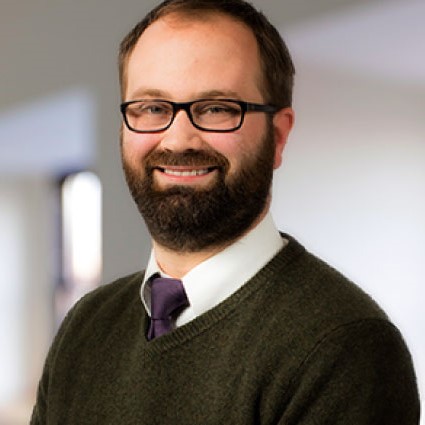One of the most powerful aspects of the two-week immersive Road Home program is group therapy for veterans and service members. Along with the help of clinicians like Dr. Klassen these sessions, vets and service members in these sessions can share their experiences, questions, and perspectives in a safe space. Powerful transformations and healing can occur when one veteran, for example, can shed light on the experience of another, helping that individual better understand a trauma and change the narrative.
Brian Klassen, PhD, is the Clinical Director of the Road Home Program, part of the Wounded Warrior Project's Warrior Care Network.
For information about treatments for PTSD please visit The Treatment Hub.
The way we approach cognitive processing therapy in a group is really about letting veterans speak to each other, right? And I think the kinds of questions that they can ask each other, the kinds of perspectives that they can give each other, incredibly helpful. Somebody like me with my training and background, I’m going to bring certain things to the treatment, but really having vets talk to each other, I think is something I try to sort of cultivate as much as I can and I know that’s something that we try to do at Rush and Road Home as well. I remember very clearly, we were in the middle of a group session and there was a veteran who was talking about his, what we call an index trauma, which is the trauma that he had chosen which had distressed him and haunted him the most. That he saw a convoy roll over an IED and he felt like he was in a position to know that there was an IED there and that he should have spoken up and said something about it. But another veteran in the group, and this was completely outside of my awareness, completely outside of my radar, started asking him questions about - hey, what kind of IED was this? Was it pressure plate, was it remote detonated? And it got into this very granular discussion about like what year it was. And it kind of led to this really incredible lightbulb moment for this veteran, that it was like this is a remote detonated IED, which completely changed how he had understood this story. And you could see it happen. I mean, he stood up, he started waving his arms. I mean, it’s just things were really changing for him like in real time having understood it. He was able to kind of understand the event differently and kind of let some of the guilt go because of that conversation. And again, it’s not something I could have given him. The kinds of discussions too you have about weapons, ballistics and like trajectories of bullets or like exit wounds or the kinds of medical equipment that a medic has in 2004 versus 2012. All those things end up mattering a lot in cognitive process therapy that’s done well.
BrainLine is powered in part by Wounded Warrior Project to honor and empower post-9/11 injured service members, veterans, and their families.
About the author: Brian Klassen, PhD
Brian Klassen, Ph.D., is the Clinical Director for The Road Home Program: The National Center of Excellence for Veterans and Their Families at Rush University in Chicago, Illinois. Brian spent his formative years training at the Jesse Brown VA Medical Center, completing rotations in chronic pain management, residential substance use disorder treatment, and PTSD. Brian has special expertise in providing front-line treatments for PTSD, including Prolonged Exposure and Cognitive Processing Therapy.

